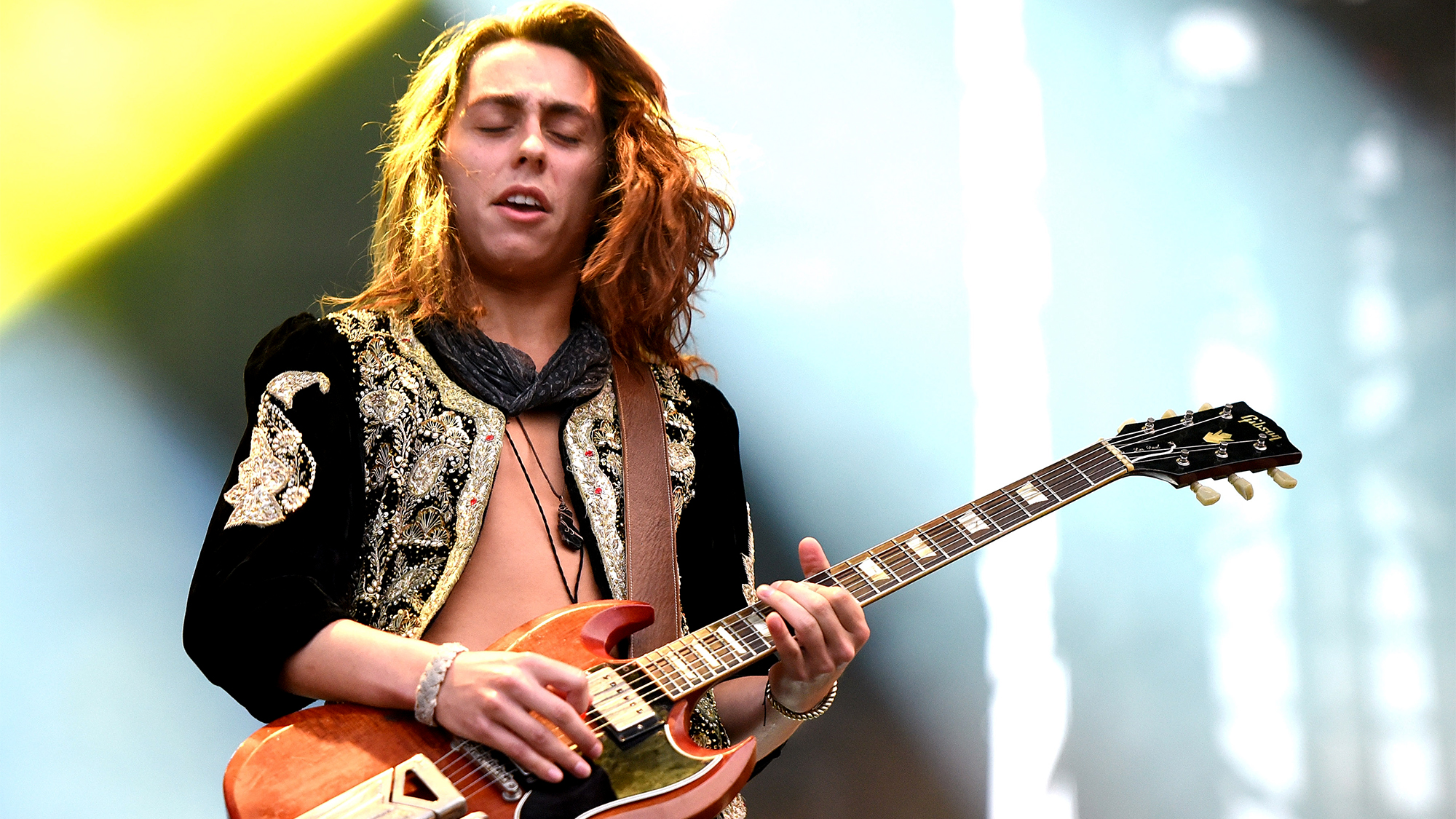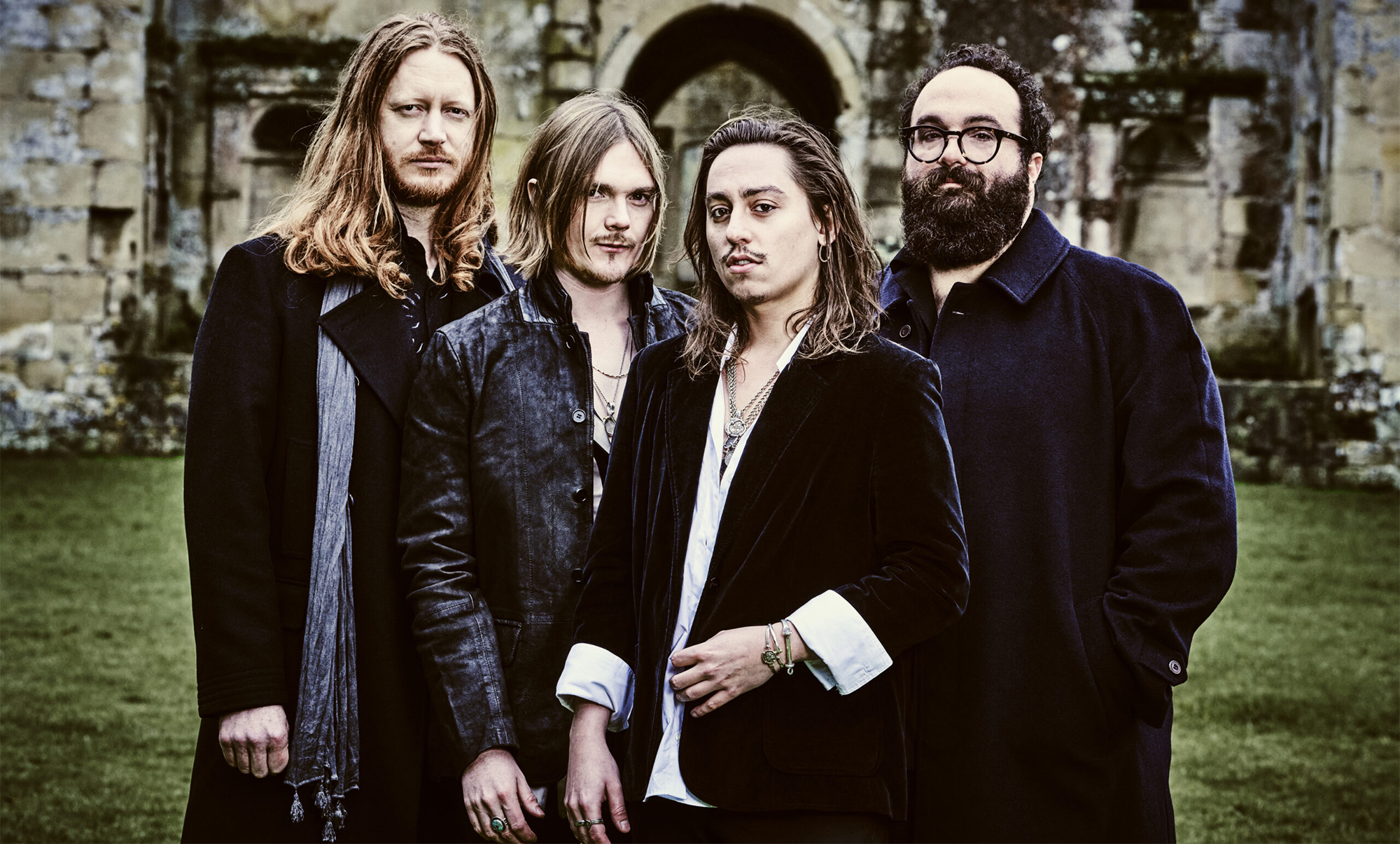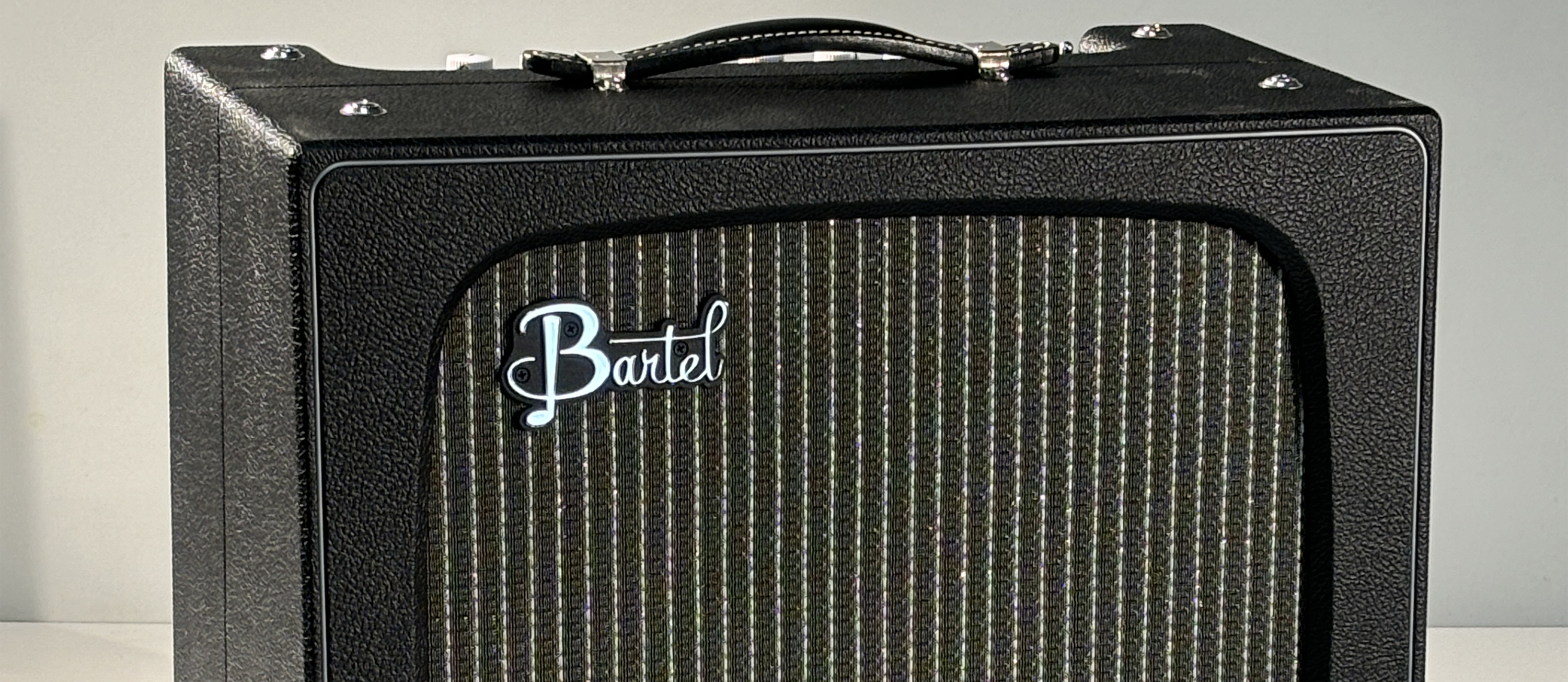“There were all these things I couldn’t have done in Greta Van Fleet. It wouldn’t have made much sense.” Jake Kiszka and Chris Turpin explain why Mirador is the twin-guitar fusion that's now rocking their world
The guitarists said taking a serious approach to their side project was the only way to make it work

All the latest guitar news, interviews, lessons, reviews, deals and more, direct to your inbox!
You are now subscribed
Your newsletter sign-up was successful
Ida Mae’s Chris Turpin had a quick response when Greta Van Fleet’s Jake Kiszka broached the idea of forming a band with him a few years ago.
“I said, ‘Well, only if it’s really fucking good,’” Turpin recalls as he and Kiszka laugh at the memory via Zoom from England. “It was like, ‘We can’t just dilly dally in this respect. If we’re gonna do it, we have to do something that’s… serious, you know?’”
Fans can judge for themselves if they succeeded when their group, Mirador, releases its self-titled debut album on September 19.
Kiszka is quick to acknowledge that he was well aware of the gravity that would come with such an endeavor.
“The entirety of Mirador’s existence has been trial by fire,” he explains, “in that we knew whatever was going to be done, there was going to be scrutiny involved. There’s a certain level of technical proficiency, songwriting, the artistry of what we were doing that’s looked at by the bar that’s been set by Greta, by Ida Mae, what people were accustomed to.
“To that point it was like, ‘Yeah, this really does have to be serious or else we could run the risk of it not working or not being taken seriously — or not being understood, ultimately.
“So there was a big drive for that, in many ways. You can hear it on the record, I think.”
All the latest guitar news, interviews, lessons, reviews, deals and more, direct to your inbox!

The Kiszka-Turpin partnership began during the last week of 2018, when Ida Mae opened for Greta Van Fleet’s three-night stand at Detroit’s Fox Theatre — a hometown show, essentially, for the headliner, which hailed from not too far away in Frankenmuth, Michigan. Greta Van Fleet was riding the success of its EPs Black Smoke Rising and the Grammy award–winning From the Fires and its first full album, Anthem of the Peaceful Army.
Ida Mae, an Americana duo formed by Turpin and his wife Stephanie Jean Ward in England and relocated to Nashville, was awaiting the release of its 2019 debut, Chasing Lights, but had already built a buzz in music and media circles.
Kiszka and Turpin became “really fast friends” during the Detroit run, each enamored by what they heard the other doing.
“It was like watching someone perform and play guitar in such a way I hadn’t seen before,” recalls Kiszka, who played on Ida Mae’s sophomore effort, Click Click Domino, in 2021. “Sort of a kinship to the things I was doing in some ways, yet different, removed.”
It was like watching someone perform in such a way and play guitar in such a way I hadn’t seen before.”
— Jake Kiszka
Turpin’s first words to Kiszka — verbatim, he says — were, “‘Where the fuck have you guys been?!’ Having played in a lot of different rock and roll bands in the U.K. I’d been waiting for a rock and roll band that could do what they could do.
“In the U.K., we’re all sort of obsessed by indie rock and new, shiny things and new directions. With Greta, finally, I felt like there was some blood thread back to the stuff I heard as a kid that I first got excited by — Fleetwood Mac, Free.
“It was a thrill to see that and to see the orchestration of the pieces and how the music was moving. It was very immediate to me this wasn’t just quick rock and roll; this was highly orchestrated and carefully worked out, beautiful moments of playing.
“That’s what got me hooked on the way Jake hits things — that raw energy and passion and the intensity. It was just beautiful.”
In Turpin, meanwhile, Kiszka was captivated by “a very immediate sort of nuance of blues and folk — what I mean by folk, I suppose, is sort of more traditional and perhaps ancient European folk and early American folk music, like your Martin Carthy, Bert Jansch. That was something I could hear in his playing, and I hadn’t really seen anybody else do that.
“There are so many things for people to pick up a guitar and play now, that some of these ancient melodies and tunes and playing styles and philosophy — it’s sort of a lost art form in a way. I could hear in Chris’s playing things that have influenced me but I think rarely influence guitar players today.
“So I was immediately drawn to what he was doing. He had all these different licks and all these different movements and concepts I hadn’t accessed in my playing yet — that I didn’t know existed in many ways. That was reciprocated; I had a lot of things that Chris hadn’t explored. That was an immediate kinship.”
The two — both brought up in what Kiszka calls “artistically affluent households” — soon began to play together in “a lot of late-night jam sessions, fueled by wine and guitar playing.”
I asked Chris at the end of that week, ‘Would you want to do something more formal, like would you consider a band?’”
— Jake Kiszka
The onset of the COVID pandemic during the spring of 2020 gave the pair more time to work together. Kiszka hosted Turpin at his Victorian home in East Nashville, initially thinking they’d be writing perhaps for other artists or for possible film and television projects. Within a week, however, Kiszka says “we basically had a full record’s worth of songs” and the realization they worked together as much like bandmates and collaborators.
“What Chris and I are really good at doing is taking something meant to be finite or simplistic and pushing it to the absolute limit so you wind up somewhere on the fringes,” Kiszka says. “It was kind of perfect. There were all these things I couldn’t have done in Greta, maybe. It wouldn’t have made much sense.
“So I asked Chris at the end of that week, ‘Would you want to do something more formal, like would you consider a band?’”
It was also Kiszka’s idea to add British players, which led Turpin to “send out my winged monkeys,” finding bass guitarist/keyboardist Nick Pini and drummer Mikey Sorbello.
A six-day demo session at Peter Gabriel’s Real World studios in Bath, England during June 2022 proved fruitful and yielded most of Mirador’s tracks, including the first single, “Feels Like God.” The fledgling band navigated their “day job” schedules — which included Mirador opening some shows on Greta Van Fleet’s 2024 tour — before hitting the studio for two weeks with Grammy award winner Dave Cobb, who co-produced the 12-track set with Kiszka in Savannah, Georgia.
Recording primarily live, with minimal overdubs, Kiszka and Turpin worked with gear both familiar and fresh. Kiszka took his “beloved” Gibson SG electric guitar but also worked with a late 1950s Fender Telecaster in Cobb’s stocked arsenal, as well as a silverface Princeton combo that Turpin says “became the heart of the tones of what we were working with.”
We tried a lot of stuff out, but for once, for me, it was quite exciting for me that I didn’t use too much shit.”
— Chris Turpin
Kiszka also played through some Selmer amplifiers as well as a custom ES-345 12-string and “tons of brilliant pedals” in Cobb’s stock. Turpin, accustomed to working resonators or a Gretsch White Falcon, “went on quite a tone quest trying to find the right guitars to match what Jake was doing.” That led him to a ’66 Stratocaster “that had that sort of British folk, Richard Thompson–esque thing,” as well as an “entirely stripped” 1970 Gibson Les Paul Custom, a “battle axe of a guitar” that he and Kiszka dubbed the Underdog.
“It’s an absolute broad sort of a guitar that’s got that big Gibson humbucker thing that just gives a lot of weight and harmonic low-mids underneath Jake’s SG,” Turpin says. “We tried a lot of stuff out, but for once, for me, it was quite exciting for me that I didn’t use too much shit.”

The great adventure for Kiszka and Turpin, of course, was learning how to play together. That involved a lot of “homework” and, Kiszka notes, “a deep dive, out of sheer curiosity, into bands that historically had two guitar players in them, and how they did it. We really dug back.” Those archetypes included the Beatles, the Kinks, AC/DC, Guns N’ Roses, Eagles and even single-guitar outfits such as Led Zeppelin.
But, Turpin adds, “I’ll be honest; we didn’t see too much similarity in how we wanted to approach things.” The result is that Mirador offers a collection of blues-steeped pieces ranging from the epic, orchestrated constructions of “Feels Like Gold,” “Ten Thousand More to Ride” and “Skyway Drifter” to the stomping fury of “Roving Blade” and “Blood and Custard,” the metal blaze of “Ashes to Earth” and mellower chime of “Dream Seller” and Kiszka’s album-closing instrumental “Hymnal 1.”
“A big part of what’s become the Mirador thing is how we could be dancing around each other,” Kiszka explains. “We sort of had it laid out before us what had been done before, and it became far more obvious to us what hadn’t been done yet. So the approach was gonna be where do the lead guitar lines come in? It was, like, texturing things and playing with the mixture, how we’re gonna split things in stereo. There were tons of ideas, some of it organic, some of it premeditated.
“A lot of times, if Chris was singing a verse or something, his guitar would be out and mine would be in, and vice versa. Then they’d come together in a collision in the chorus, which obviously adds a lot of depth and scale to the chorus. These were all kinds of new territories, to some degrees in the way we were approaching them.”
It’s a high mountain we’re still trying to summit, and we’re in the thralls of the chaos right now. But it’s exciting.”
—Jake Kiszka
A specific case in point, Kiszka says, was the track “Heels of the Hunt.”
“That’s basically the idea of crafting a guitar riff, let’s say, or a motif that could work in tandem as two guitars, and the only way, really, to play it would be with two guitars,” he explains. “There’s actually two riffs, but they’re intertwined to make it something we never heard before or had come across in that research we did.”
Turpin says the process “felt quite natural. It came together very quickly, from the first time we sat down with two acoustic guitars. Jake has a way of playing melody and riffs within chords. That actually gave me a lot of space to open out and fill out other bits of the EQ spectrum without doing a full-on Thin Lizzy situation — which we love, but that’s not what we were aiming at.”
In Mirador, Kiszka also adapted to a new role as lead singer, which was mildly intimidating.
“They’re big shoes to fill ’cause of where I’m coming from and the singers I’ve been onstage with,” he says, including his twin brother, Josh, in Greta Van Fleet. “I can sing in some of that way, in that style, obviously because that’s part of my blood as well. It’s taken a lot of courage, if I’m being honest, to come to the table, especially with a project of this sort of scope and this kind of energy and confidence. I really had to dive into understanding how I was gonna do that.
“Chris has really helped with some of the technical aspects of singing. In some ways I’m still on the path to finding my approach, really, to finding my voice. I think on the record you hear the foundation, maybe, but I’m still on this journey.”
Kiszka and Turpin concur that Mirador will definitely be a going concern. They already have songs for their next album, and tour plans for the fall both after the album release and in 2026. Those will be fit in around Greta Van Fleet’s plans — which include new music in the relatively near future — and Turpin’s work developing new artists. (Ida Mae is on a temporary hiatus from touring, he says.)
“We’re hitting the ground, and it’s going,” Kiszka says. “There’s been a lot of self-sacrifice because of the amount we’ve taken on. It’s a high mountain we’re still trying to summit, and we’re in the thralls of the chaos right now. But it’s exciting.”
Gary Graff is an award-winning Detroit-based music journalist and author who writes for a variety of print, online and broadcast outlets. He has written and collaborated on books about Alice Cooper, Neil Young, Bob Seger, Bruce Springsteen and Rock 'n' Roll Myths. He's also the founding editor of the award-winning MusicHound Essential Album Guide series and of the new 501 Essential Albums series. Graff is also a co-founder and co-producer of the annual Detroit Music Awards.




